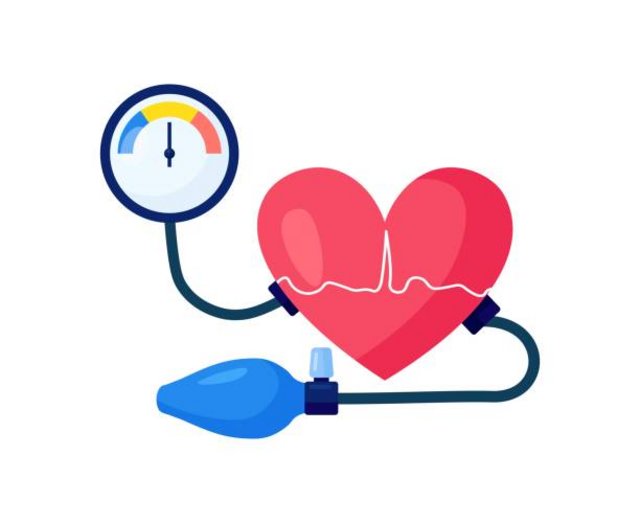July 19, 2023

As time passes, elevated blood pressure (also known as hypertension) can cause damage to the heart as well as vessels. That's why it's important to keep regular blood pressure checks.
As your heart relaxes and contracts, blood pressure will increase. The measurement is done using two numbers: the highest number indicates systolic pressure, while the second is diastolic.
There are a myriad of causes for worry
High blood pressure usually develops in the course of time, but most people don't notice it until they're in the middle of it. If untreated, hypertension may cause harm to kidneys, heart eyes and brain. Regular blood pressure checks can be done by your health care provider. They may suggest modifications to your lifestyle, like having a low-fat diet, avoiding salt and fat, shedding weight, if overweight, drinking fewer or no alcoholic beverages, and quitting smoking.
Stress causes the heart to accelerate its beat and causes blood vessels are able to contract. The long-term effects of stress, especially those who suffer from post-traumatic disorder (PTSD) is a cause of hypertension in the blood vessels. High blood pressure can be caused by certain medications or other conditions. This includes age, family history, being over 65, race, overweight, and having chronic kidney disease or diabetes (CKD). Diuretics or water pills or fluids to flush sodium in your body. Beta blockers lower the levels of calcium in bloodstreams. These drugs can slow down the heartbeat and relax blood vessels. Check out http://vitanea.pl/ultra-cardio-plus-opinie-sklad-cena-i-gdzie-kupic/ to get more info concerning blood pressure.
The symptoms
Patients with high blood pressure typically don't show any symptoms. This is among the main reasons they're often referred to as "the silent killer." This is why it's important to get regular blood pressure checks.
You can help keep your blood pressure in check by following a healthy eating plan, abstaining from alcohol consumption and exercising more. Your doctor may prescribe medications to reduce your blood pressure.
Diuretics are a first-line treatment for high blood tension. They assist in flushing away excess sodium. This reduces diastolic and systolic blood pressure. Your healthcare provider may prescribe these medications on their own or as a combination with other drugs, like ACE inhibitors and angiotensin II receptor blockers. Certain drugs, like antidepressants and painkillers can cause an increase in blood pressure. So it's important to tell your doctor about any drugs you take. They will be able to help you choose an appropriate medication that isn't likely to interfere with medical conditions that you have or cause side effects.
Treatment
People with high blood pressure are able to lower it through medication and lifestyle adjustments, such as following a diet low in salt as well as losing weight or stopping smoking. A variety of medications can lower blood pressure through removing excess fluids and toxins, as well as slowing the heartbeat, and easing blood vessels.
Your doctor will test your blood pressure on a regular basis during visits and will look for secondary reasons for hypertension. These could include an underlying medical condition or the medication you're currently taking. If the cause of hypertension is found, treating it reduces your systolic and diastolic levels and reduce the risk of long-term damages to kidneys, blood vessels heart, and brain. The healthcare provider may recommend additional tests to verify the diagnosis and determine the most effective solution for your situation. Hypertension might not trigger any signs, but it could result in heart disease, strokes, kidney failure eyes, nerve damage, and the premature loss of life.
Here is a checklist of preventative measures.
The best way to avoid high blood pressure is through a balanced diet, losing weight, cutting down on alcohol consumption, and exercising regularly. Some people may also benefit by taking medication.
Age: The older you're older, the more likely to be prone to developing blood pressure. Black people who are not Hispanic suffer higher rates of hypertension than non-Hispanic white individuals. Being overweight: There is the strong connection between obesity and high blood pressure. Food: A diet which contains a lot of sodium (salt) as well as low in fiber can cause blood pressure to rise.
Studies have shown that physical activity decreases blood pressure. Minimum 150 minutes a week of moderate exercise that's about 30 minutes every day.
The emotional and stress-related issues The effects of emotional stress as well as some types of chronic stress could temporarily raise the blood pressure. It is possible to manage them with coping methods and talking with your doctor.
Posted by: HealthBlog at
06:55 AM
| No Comments
| Add Comment
Post contains 755 words, total size 5 kb.
32 queries taking 0.0148 seconds, 50 records returned.
Powered by Minx 1.1.6c-pink.









